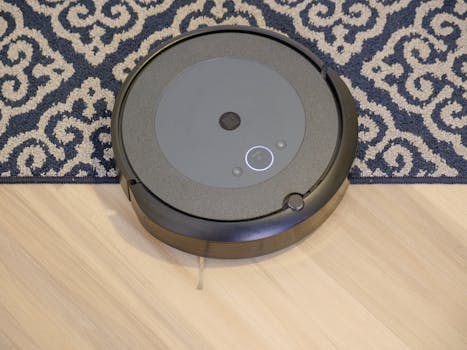
Smart Homes and Smart Living: The Technological Transformation of European Homes by 2025
Smart Homes and Smart Living is revolutionizing the way Europeans live, with the integration of advanced technologies and innovative solutions that make homes more efficient, comfortable, and sustainable. The concept of smart homes is no longer a futuristic idea, but a reality that is transforming the European housing market.
Introduction to Smart Homes
Smart homes are residences that incorporate advanced technologies, such as the Internet of Things (IoT), artificial intelligence (AI), and data analytics, to create a more comfortable, convenient, and sustainable living environment. These technologies enable homeowners to control and monitor various aspects of their homes, including lighting, temperature, security, and entertainment systems, remotely or automatically.
The smart home market in Europe is expected to grow significantly by 2025, driven by increasing demand for energy efficiency, convenience, and security. According to a report by MarketsandMarkets, the European smart home market is projected to reach $22.4 billion by 2025, growing at a Compound Annual Growth Rate (CAGR) of 12.3% during the forecast period.
Technological Advancements in Smart Homes
Several technological advancements are driving the growth of the smart home market in Europe. Some of the key technologies include:
- Internet of Things (IoT): IoT enables the connection of various devices and sensors in the home, allowing for real-time monitoring and control of different systems.
- Artificial Intelligence (AI): AI-powered systems can learn the habits and preferences of homeowners, adjusting lighting, temperature, and other settings accordingly.
- Energy Harvesting: Energy-harvesting technologies, such as solar and wind power, are becoming increasingly popular in smart homes, reducing reliance on non-renewable energy sources.
- Smart Speakers and Voice Assistants: Smart speakers and voice assistants, such as Amazon Alexa and Google Assistant, are being integrated into smart homes, enabling voice control and increasing convenience.
Benefits of Smart Homes
Smart homes offer numerous benefits to homeowners, including:
- Energy Efficiency: Smart homes can optimize energy consumption, reducing waste and saving homeowners money on their energy bills.
- Convenience: Smart homes enable homeowners to control and monitor various systems remotely, increasing convenience and flexibility.
- Security: Smart homes can enhance security, with features such as motion detection, door and window sensors, and smart locks.
- Sustainability: Smart homes can reduce carbon emissions and promote sustainable living, with features such as energy-efficient appliances and renewable energy systems.
Challenges and Limitations
While smart homes offer numerous benefits, there are also challenges and limitations to consider. Some of the key challenges include:
- Cybersecurity: Smart homes are vulnerable to cybersecurity threats, such as hacking and data breaches.
- Interoperability: Different smart home devices and systems may not be compatible, limiting their functionality and convenience.
- Cost: Smart home technologies can be expensive, making them inaccessible to many homeowners.
- Complexity: Smart homes can be complex to set up and use, requiring significant technical expertise.
Conclusion
Smart homes and smart living are transforming the way Europeans live, with advanced technologies and innovative solutions making homes more efficient, comfortable, and sustainable. While there are challenges and limitations to consider, the benefits of smart homes are undeniable. As the smart home market in Europe continues to grow, it is likely that we will see increasing adoption of these technologies, driving a more sustainable and convenient future for homeowners.






